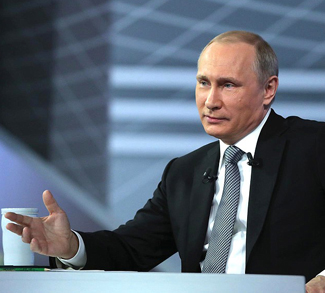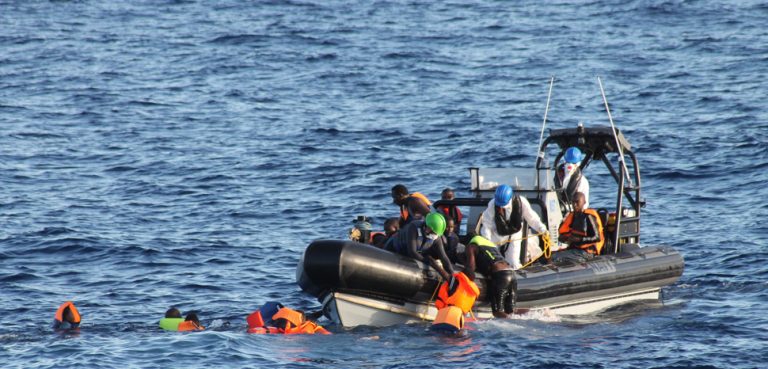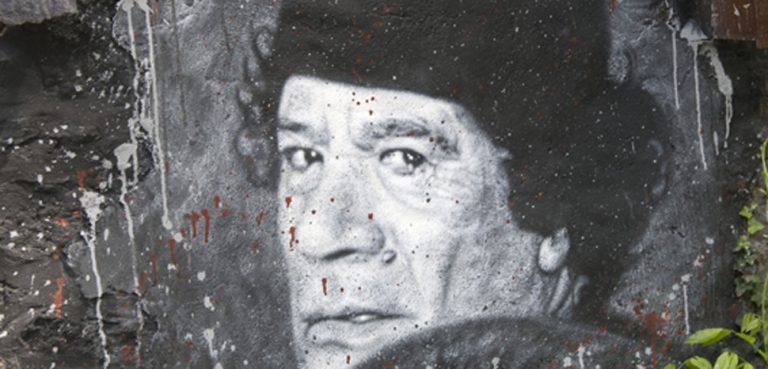The presidents of Libya’s two parliaments met in Rome as part of an Italian sponsored initiative to resume a reunification process. The Speaker of the Tobruk House of Representatives (HoR) parliament from Tobruk, Aghila Saleh, and Abdulrahman Sewehli, the head of the High Council of State in Tripoli. The latter serves as the Parliament of the UN-backed Government of National Accord (GNA – as part of the December 2015 Skhirat Accord) headed by Prime Minister Fayaz al-Sarraj). Abdulrahman Sewehli seemed optimistic at the end of his April 21st meeting with Italy’s foreign affairs minister Angelino Alfano. Saleh, has who has been president of the HoR since August 2014, has been subject to US and EU sanctions since 2016 for stalling and blocking political progress
The meeting did not produce any formal agreements, but it appears to have improved the prospect of more constructive discussions to resolve “pending” issues in the Libyan crisis. The two representatives agreed to meet again. The fact that Italy’s ambassador to Libya, one of the few EU diplomats in the North African country, also attended the talks, underlines the extent to which Rome wants the parties to reach a solution, such that the GNA might finally achieve a sufficient degree of sovereignty. Italy’s prime minister recently visited Washington, where he discussed Libya to gauge the extent of President Trump’s interest in taking a more active stance – as Obama had done – in backing the GNA and Prime Minister al-Sarraj’s efforts to extend its reach. However, Trump’s enthusiasm in this regard was less than lukewarm.
While Trump may appreciate the glory of playing intermediary in a Tobruk-Tripoli reconciliation, he doesn’t want to put any effort into attaining it.
That leaves Moscow. The Russians are doubtless interested in reclaiming a role in Libya, perhaps gaining a naval base in Cyrenaica, and extending their influence in the eastern Mediterranean. To that end, Vladimir Putin’s government has kept Marshal Khalifa Haftar and the Tobruk (HoR) close. But, the Russians have also held talks with the HoR’s Tripolitanian rivals to find an acceptable solution to the crisis. For Russia, Libya might serve as a lever for diplomatic leverage. For, the EU and Italy, which endures the largest burden of illegal migration from the Libyan coast, Russia might contribute to a solution.
The Libyan Summit in Rome shows that reconciliation is not impossible
It would be premature – stability is at the ‘toddler’ stage at best – to suggest the Government of National Accord has reached a breakthrough. Libya is still far from even a precarious stability. But, the renewed diplomatic effort to resolve the GNA puzzle may have a chance of achieving a reasonable facsimile. The Tripoli government, led by Al Sarraj, which is the only one that the UN (and the EU) has formally recognized, remains vulnerable. But, Russia seems ready to return to North Africa, having courted but not formally recognized the Tobruk HoR, elected in 2014. Until last March, when Moscow and Washington appeared to have found a common language, General Haftar was counting on a double ‘whammy’ of support from Trump and Putin.
Gen. Haftar fought Islamic State in Cyrenaica, also using his small air force to attack the Islamic militants in Sirte and Misrata. Haftar himself enjoys direct backing from President al-Sisi of Egypt as well as the United Arab Emirates, and does not recognize the authority of the government of national unity established in Tripoli. Yet, as of April 6, when Trump launched Tomahawk missiles against a Syrian air base in response to the al-Assad government’s alleged use of chemical weapons, it seems something got lost in translation between the White House and the Kremlin. As for al-Sarraj’s government, it has never been able to impose its authority on the capital, where at least a dozen militias remain active and alliances and areas of influence shift continuously. Fayez Al Serraj remains a weak prime minister of a government that has not established its rule. From a practical point of view, Serraj’s government, even after the Rome meeting, has yet to secure political legitimacy from the House of Representatives (HoR) in Tobruk.
In this scenario, Aghila Saleh and Haftar might be persuaded to come to terms with the GNA. Both fear that with the legitimation of Serraj, their roles, without American backing, are destined to carry less international weight. Now the UN-sponsored government administers some three quarters of Libya’s territory on paper. That is all of Libya except for Cyrenaica where the ‘unrecognized’ HoR is based. Moreover, Serraj has secured the support of three key institutions: The National Oil Company (NOC), the Central Bank and the Libyan Investment Authority (LIA). These are remnants of the Qadhafi regime and they control the clear majority of Libya’s assets. LIA managed some $70 billion euros, which during the time of Qadhafi, Libya invested virtually all over the world. That money is still being withheld, but would be released once stability is achieved. The funds, oil revenue, and the Central Bank’s coffers, will all be used to pay for reconstruction.
Haftar and Saleh wanted to create an alternative LIA and even another NOC in Cyrenaica, but oil production is too weak to support these projects. Thus, The Tobruk government had little choice but to try to reach a compromise with Tripoli. As much as Haftar can count on Russian and other international support for his efforts to combat Islamic State, Moscow cannot play all its cards on a Libyan bet. Still, Haftar and Saleh might yet secure some lofty roles within the GNA if they play along.
The Libyan summit in Rome is significant because it’s the first ever meeting between the Tripoli and Tobruk rival authorities. The Italian government, meanwhile, appears to have taken a responsibility to fulfill the Libyan political agreement. The two sides agreed on achieving a peaceful and fair solution to issues focused on the country’s interests, national reconciliation, and the repatriation of all Libyan refugees and displaced persons. Tripoli and Tobruk can now begin consultations to amend the GNA agreement to help resolve the Libyan stalemate, including the role that General Haftar will play. The Rome ‘Libyan’ summit could also serve as the platform for a more important meeting as early as this summer between Sarraj and Haftar in Washington, with President Trump. That meeting could settle a reconciliation between the two Libyan leaders. Europe fears the Libyan refugee ‘bomb.’ The country, as it stands now, faces a constant risk of implosion. Collapse would mean an exponential rise in the already dramatic migration phenomenon.
Washington’s absence in Libya is an opportunity for Moscow
While Trump may appreciate the glory of playing intermediary in a Tobruk-Tripoli reconciliation, he doesn’t want to put any effort into attaining it. He will let the EU handle it, and give American assent when everything is ready. Trump does not see a US role in resolving the Libyan crisis. Italy’s PM, Paolo Gentiloni, tried to draw some American attention to the problem of security in the Mediterranean during his visit to Washington. But he came back empty-handed. The White House no longer cares about the Libyan problem, which the U.S. itself helped to trigger with its 2011 NATO intervention. For Trump, Libya is Obama’s and, especially, Hillary’s problem. The possibility that jihadist militias might grow stronger was, incidentally, one of the arguments that Gentiloni discussed with Trump to persuade the president not to ignore the Libya file. Trump confirmed that if the threat were to come back, he would not hesitate to intervene. But, the task of shaping a political solution to the crisis would be left to the EU and Italy. Perhaps at the forthcoming May 2017 G7 Summit in Taormina Italy, Italy’s PM might try to persuade Trump to intervene, noting that Russia is backing Haftar. He might wish, in passing, to mention that it might not be in Washington’s interest to allow Putin to grab more influence in the Mediterranean.
As recently revealed by The Guardian, even a top candidate for the role of US Special Envoy to Libya, Sebastian Gorka, urged the partition of Libya into three, on the basis of the Ottoman-era administrative divisions of Cyrenaica, Fezzan, and Tripolitania. The EU would find that hard to accept, given all the efforts in trying to keep Libya whole such as to better control the migration problem. Migrant landings in Italy are incessant and continue to rise, marking a 40% increase compared to 2016. But, Haftar seems the only one capable of suppressing the Islamist wave. As for Moscow, Haftar’s ally (the Libyan General even speaks Russian), it might be the better capital for the Italian PM to visit to secure more support in mediating the Libyan crisis. Al-Serraj’s visit to Russia on March 2 certainly suggests the Kremlin is keeping all options open in Libya, especially the idea of a unity government. Putin would work with Italy in that regard and get some concessions on sanctions and Ukraine in return. Italy has this one chance. It should mediate an intra-Libyan agreement with Moscow. It should be noted that Russia has also held bilateral talks with Algeria, which has a strong influence in Libya, on security issues.




